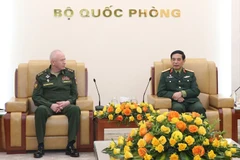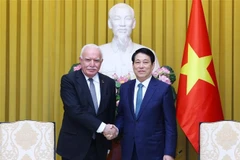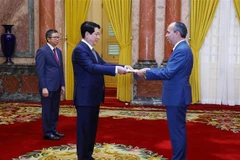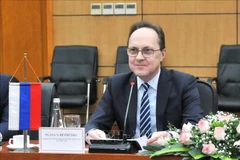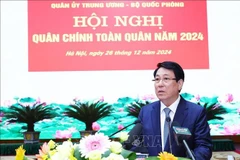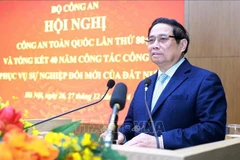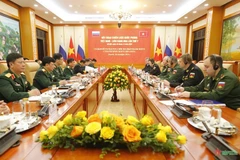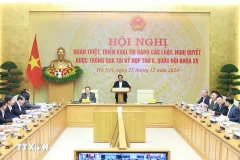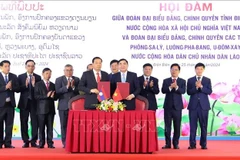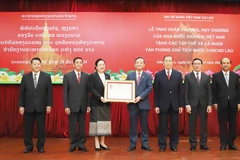Addressing the UN Security Council meeting on the InternationalResidual Mechanism for Criminal Tribunals (IRMCT) operations, Quy acknowledgedthe Mechanism's efforts in implementing measures to realize the council’s Resolution2529 on reviewing the two-year operation of theMechanism, and supported the completion of the trials on time.
IRMCT Judge Carmel Agius said that in the past six months, the Mechanismhas made positive progress in adjudication such as issuing a final judgment onJune 8, 2021 and two other judgments in June, and beginning a trial againstFelicien Kabuga, one of the key suspects in the 1994 Rwandan genocide, who was arrestedin France and handed over to the Mechanism last year.
The Mechanism’s Prosecutor Serge Brammertz affirmed his commitmentto hunting Rwanda genocide suspects who remain in hiding, as well as assistingnational judicial authorities in prosecuting serious crimes.
Participants expressed their support for the Mechanism'srole in upholding justice, prosecuting those believed to have committed seriouscrimes, and calling on the countries concerned to cooperate with and supportthe Mechanism.
Some suggested the Mechanism ensure the highest judicialstandards, report on the health protection situation for detainees andspecifically mention a number of sentences issued.
The IRMCT was established in 2010 to carry out the remainingessential functions of the International Criminal Tribunal for Rwanda (ICTR)and the International Criminal Tribunal for the former Yugoslavia (ICTY) aftertheir respective closures. In June 2020, under the coordination of Vietnam, theUN Security Council approved Resolution 2529. Vietnam's cooperation with membercountries of the UN and its Security Council related to the Mechanism’s works hasbeen highly appreciated by many countries, demonstrating its objectivity andprofessionalism./.



